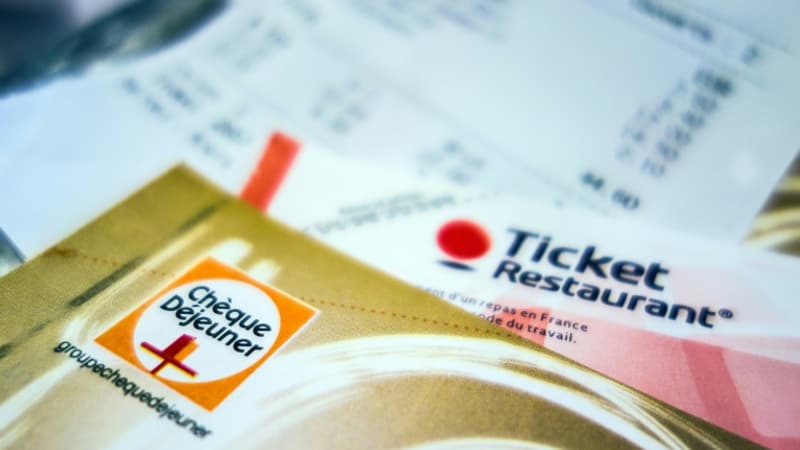Dematerialization in 2027, possible use on Sunday and throughout France and especially the perpetuation to pay their food purchases in supermarkets: the Minister of Commerce and the SMEs Véronique Louwagie presented its reform of the restaurant titles on Wednesday.
Born at the end of the 1960s in France, more than five million employees used restaurant titles to pay food and food racing in some 244,000 merchants.
Used by 5 million employees
The reform, in gestation for two years, but delayed by government changes, must allow modernizing the system and “encouraging more consumption,” the ministry told AFP.
The form that will take (project or invoice) has not yet been arrested or its calendar, the ministry wishing that it is discussed before the end of 2026.
The most sensitive point was the use of tickets to adjust all food purchases in supermarkets (except alcohol, confectionery, children’s products and animal food), a temporary device released in 2022 and extended every year since then.
It is currently in force until the end of 2026 and its last renewal had been a bit chaotic, the parliamentary calendar was pushed by the censorship of the government.
Criticized by the restorers who see it as a deficit, quantified in more than one billion euros for two years by the main organization of the sector, the UMIH, the system is very popular among employees.
“Promote consumption”
For the Government, it is “to encourage consumption and respond to the new uses”, with 6 out of 10 French who bring their homemade food to their workplace. Not to mention the generalization of teleworking.
To promote consumption, it will no longer be possible to extend the validity of the titles beyond a year.
The daily ceiling, established in 25 euros, remains unchanged, but the use will be possible every day of the week, including Sunday, except holidays and throughout France (today is limited to departments that border the workplace).
Dematerialization, scheduled for 2027, should allow simplifying the procedures of the merchants and reduce the costs they pay to the emitters, while employees can pay the nearest penny.
Source: BFM TV


